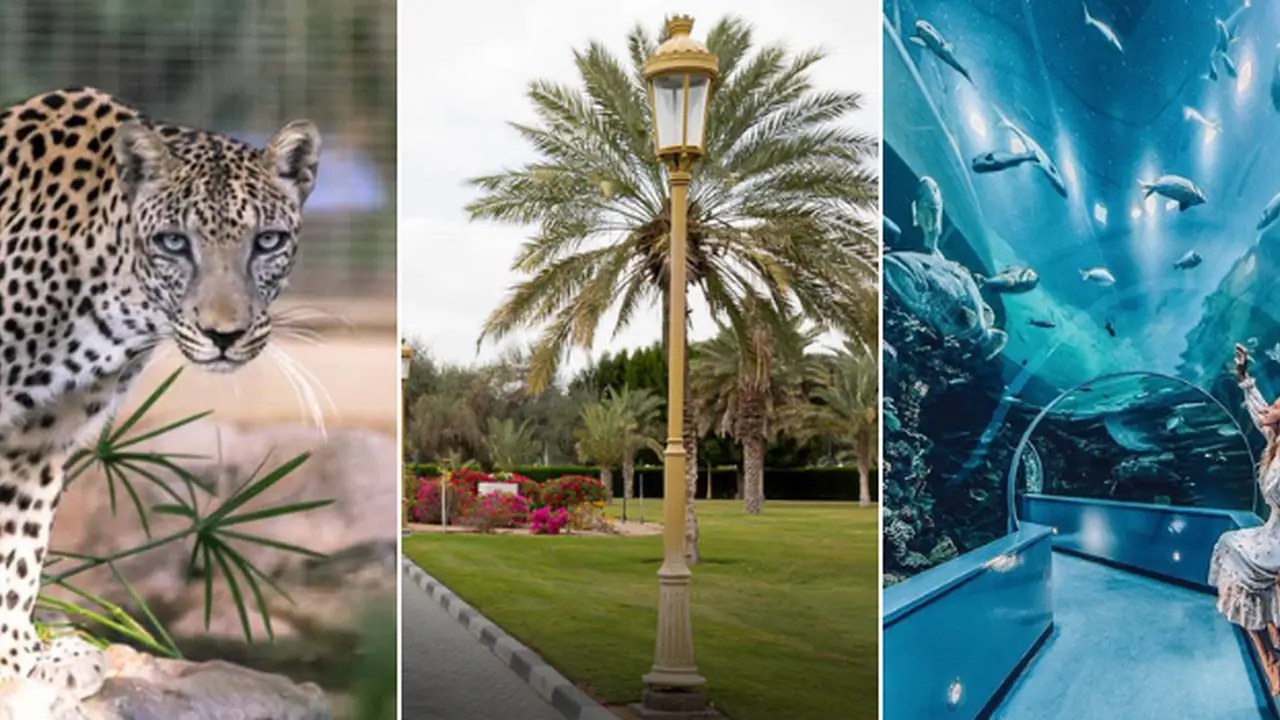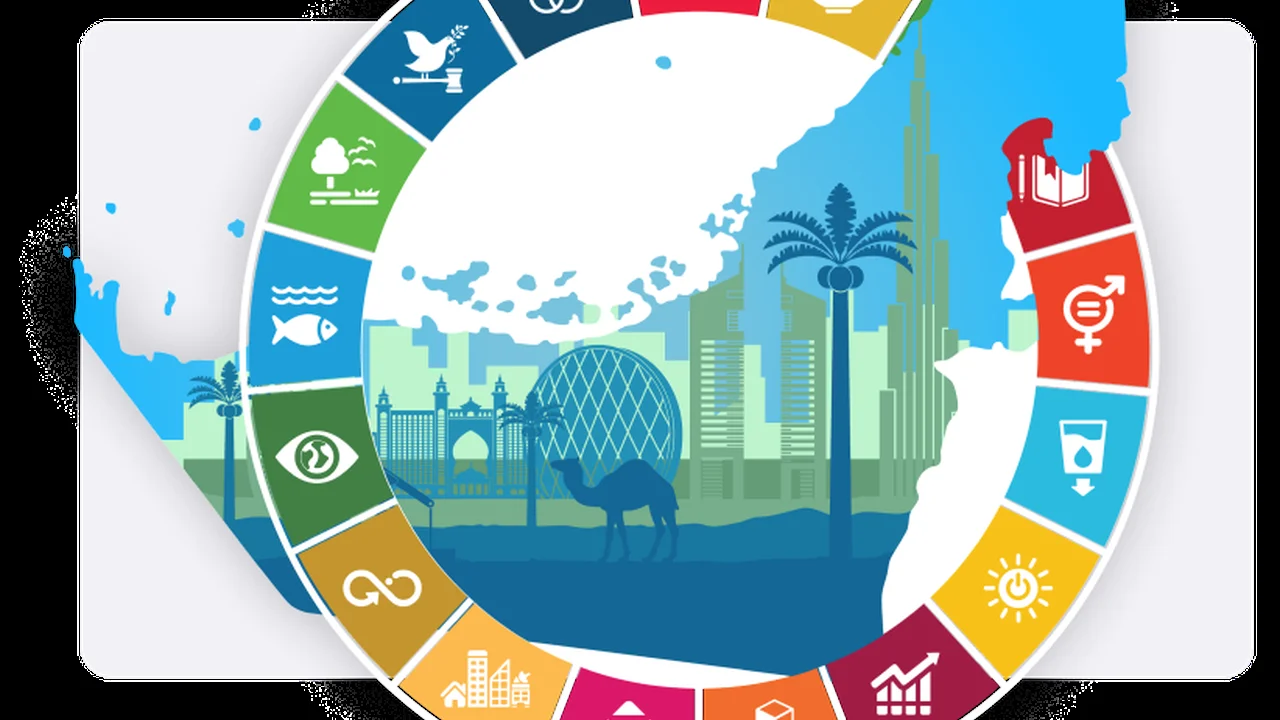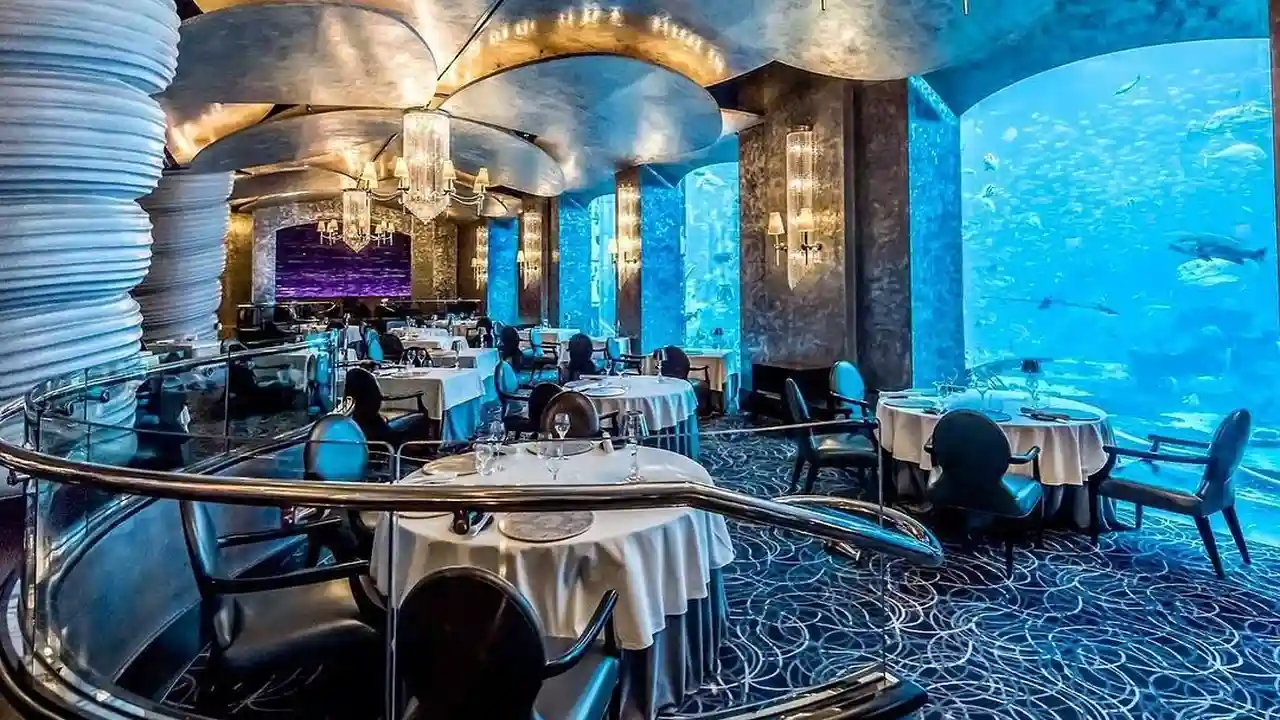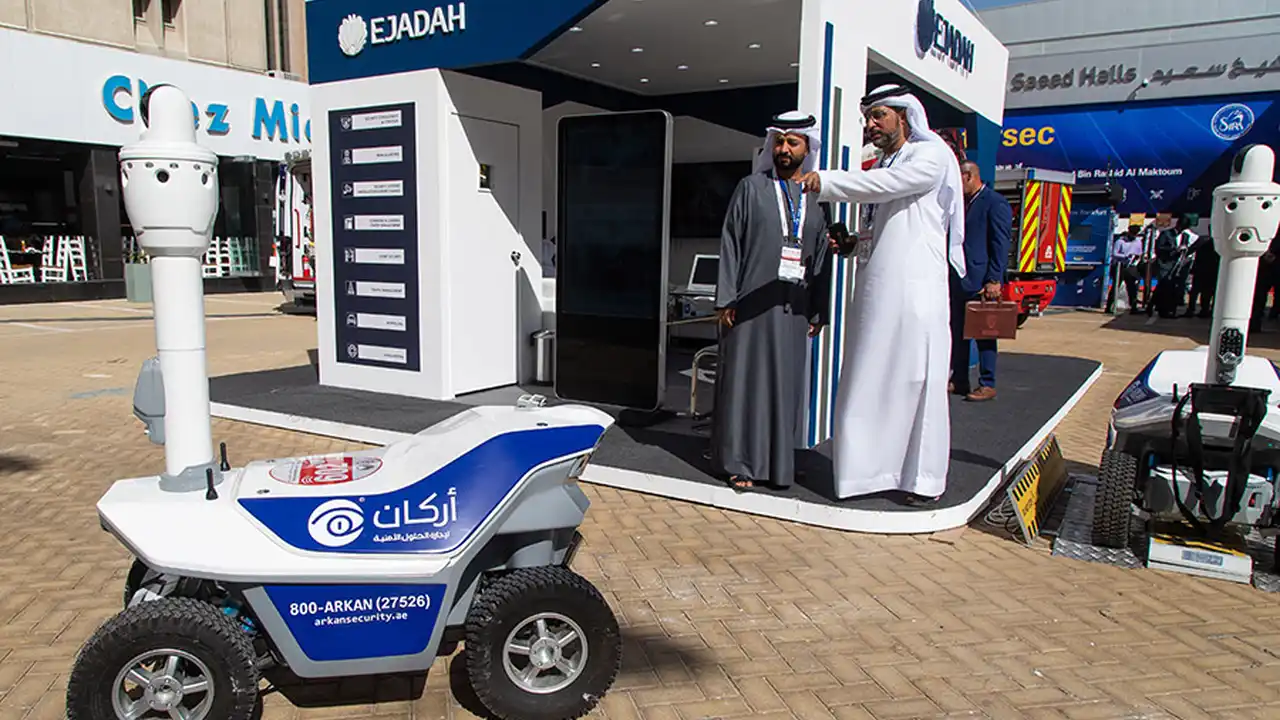5 Family-Friendly Activities in Futuristic Sharjah

Explore the future of lifestyle and tourism in futuristic cities with our sixth article delving into innovative experiences sustainable practices and technological advancements shaping urban living.
The Dawn of Hyper-Personalized Travel Experiences
Imagine a world where your travel itinerary anticipates your every whim. That's the promise of hyper-personalized travel, powered by AI and big data. Forget generic tours; future tourism will cater specifically to your interests, preferences, and even your mood.
Consider this scenario: you're planning a trip to Neo-Tokyo, a bustling metropolis built on renewable energy and holographic entertainment. Your AI travel assistant, integrated with your smart glasses, analyzes your past travel data, social media activity, and even your current bio-signals to curate a bespoke itinerary. It knows you're a fan of cyberpunk aesthetics, Japanese cuisine, and immersive art installations. So, it suggests a guided tour of the city's underground neon markets, a reservation at a Michelin-starred robot sushi restaurant, and a private viewing of a holographic Kabuki performance.
This level of personalization extends beyond itinerary planning. It also encompasses accommodation, transportation, and even dining. Hotels will offer rooms that adapt to your sleep patterns, adjusting lighting, temperature, and sound to optimize your rest. Autonomous vehicles will whisk you around the city, avoiding traffic congestion and suggesting scenic routes based on your real-time preferences. Restaurants will serve dishes tailored to your dietary needs and taste preferences, using 3D printing technology to create personalized culinary masterpieces.
Product Recommendation: For experiencing hyper-personalized travel, consider subscribing to "Voyager AI," a premium travel assistant service. Voyager AI uses advanced machine learning algorithms to create truly unique and unforgettable travel experiences. Pricing starts at $99 per month.
Use Case: A family with diverse interests uses Voyager AI to plan a trip to a future city. The AI creates a personalized itinerary that caters to each family member's interests, ensuring everyone has a memorable and enjoyable experience.
Sustainable Tourism Practices for a Greener Tomorrow
As future cities embrace eco-consciousness, sustainable tourism practices become paramount. The days of mass tourism and environmental degradation are numbered. In their place, we'll see a rise in eco-friendly accommodations, responsible transportation options, and immersive nature experiences that promote conservation.
Imagine staying at a vertical farm hotel in Singapore, where your room overlooks lush hydroponic gardens that supply the hotel's restaurants with fresh produce. Or perhaps you'd prefer a floating eco-resort in the Maldives, powered by solar energy and designed to minimize its impact on the surrounding marine ecosystem.
Transportation will also undergo a green revolution. Electric vehicles, hydrogen-powered buses, and high-speed trains will replace polluting cars and airplanes. Cities will invest in extensive networks of bike lanes and pedestrian walkways, encouraging residents and tourists to explore on foot or by bicycle.
But sustainable tourism is more than just eco-friendly infrastructure. It's also about respecting local cultures and supporting local communities. Future tourists will be encouraged to engage with local artisans, learn about traditional crafts, and participate in community-based tourism initiatives.
Product Recommendation: Support sustainable travel with "EcoTravel Gear," a line of eco-friendly travel accessories made from recycled materials. From reusable water bottles to solar-powered backpacks, EcoTravel Gear helps you minimize your environmental impact while exploring the world.
Use Case: A group of friends embarks on a sustainable adventure in Costa Rica, staying at eco-lodges, participating in reforestation projects, and supporting local communities through responsible tourism initiatives.
The Rise of Immersive Entertainment and Augmented Reality Experiences
Forget passive sightseeing; future tourism will be all about immersive entertainment and augmented reality (AR) experiences. Imagine exploring ancient ruins through the eyes of a virtual archaeologist, or participating in a live-action role-playing game that unfolds throughout the city.
AR technology will overlay digital information onto the real world, transforming ordinary landmarks into interactive learning experiences. You could point your smartphone at the Eiffel Tower and see a virtual reconstruction of its construction, or explore the Louvre Museum with a virtual guide that provides detailed information about each artwork.
Immersive entertainment will take many forms, from holographic concerts to virtual reality theme parks. You could attend a live performance by a resurrected rock legend, or explore a fantastical world filled with dragons and mythical creatures.
These immersive experiences will not only be entertaining but also educational. They'll allow us to learn about history, culture, and science in a fun and engaging way. Imagine learning about the Amazon rainforest by exploring a virtual replica of the ecosystem, or understanding the principles of physics by participating in a virtual space mission.
Product Recommendation: Enhance your travel experiences with "AR Explore," an augmented reality app that transforms ordinary landmarks into interactive learning experiences. AR Explore uses your smartphone's camera to overlay digital information onto the real world, providing you with detailed information about the history, culture, and architecture of the places you visit. Pricing: Free with in-app purchases for premium content.
Use Case: A student uses AR Explore to explore the Colosseum in Rome, learning about its history and architecture through interactive virtual reconstructions and informative annotations.
Smart Cities and the Integration of Technology in Tourism
Future cities are smart cities, powered by interconnected sensors, AI algorithms, and real-time data analytics. This technology will transform the tourism experience, making it more efficient, convenient, and personalized.
Imagine a city where traffic congestion is a thing of the past, thanks to intelligent transportation systems that optimize traffic flow and predict potential delays. Or a city where energy consumption is minimized through smart grids that automatically adjust lighting and temperature based on real-time demand.
Smart cities will also provide tourists with access to a wealth of information. Smart kiosks will offer interactive maps, real-time transportation updates, and personalized recommendations for attractions, restaurants, and events. Mobile apps will allow tourists to book tickets, make reservations, and navigate the city with ease.
But the integration of technology in tourism goes beyond efficiency and convenience. It also opens up new possibilities for personalized experiences. Smart cities can use data analytics to understand tourist behavior and preferences, and then tailor services and offerings accordingly.
Product Recommendation: Navigate smart cities with ease using "CityMapper Pro," a premium navigation app that provides real-time transportation updates, personalized route recommendations, and offline maps. CityMapper Pro integrates with various transportation services, including buses, trains, subways, and ride-sharing apps. Pricing: $4.99 per month.
Use Case: A business traveler uses CityMapper Pro to navigate a new city, finding the fastest and most efficient route to their meeting, taking into account real-time traffic conditions and public transportation schedules.
The Future of Accommodation Robot Butlers and Personalized Suites
Forget traditional hotels; the future of accommodation is all about personalized suites and robot butlers. Imagine staying in a hotel room that adapts to your every need, adjusting lighting, temperature, and even the artwork on the walls to suit your mood.
Robot butlers will be on hand to assist you with everything from luggage handling to room service. They'll be able to answer your questions, provide recommendations, and even perform basic tasks like making your bed or cleaning your room.
These personalized suites will be equipped with the latest technology, including voice-activated controls, smart mirrors that provide personalized health information, and virtual reality entertainment systems. You'll be able to customize your experience to suit your individual preferences, creating a truly unique and unforgettable stay.
Beyond personalized suites, we'll also see the rise of alternative accommodation options, such as floating hotels, underground bunkers, and even space stations. These unique accommodations will offer tourists the opportunity to experience something truly extraordinary.
Product Recommendation: Experience the future of hospitality with "SmartStay Suites," a chain of luxury hotels that feature personalized suites and robot butlers. SmartStay Suites offer a wide range of amenities, including voice-activated controls, smart mirrors, and virtual reality entertainment systems. Pricing varies depending on location and suite type.
Use Case: A couple celebrates their anniversary with a romantic getaway at a SmartStay Suite, enjoying personalized amenities, robot butler service, and a virtual reality tour of Paris.
Culinary Delights in Future Cities 3D Printed Meals and Vertical Farm Restaurants
Foodies rejoice! Future cities will offer a culinary landscape unlike anything we've ever seen. Imagine dining at a vertical farm restaurant, where the ingredients for your meal are grown right before your eyes. Or perhaps you'd prefer a meal prepared by a robotic chef, using 3D printing technology to create personalized culinary masterpieces.
Vertical farms will be a common sight in future cities, providing a sustainable source of fresh produce for residents and tourists alike. These indoor farms will use hydroponics and aeroponics to grow crops in a controlled environment, minimizing water consumption and eliminating the need for pesticides.
Robotic chefs will be able to prepare a wide range of dishes, from classic comfort food to innovative culinary creations. They'll be able to customize your meal to suit your dietary needs and taste preferences, using 3D printing technology to create personalized culinary experiences.
Beyond vertical farms and robotic chefs, we'll also see the rise of alternative protein sources, such as insect-based cuisine and lab-grown meat. These sustainable alternatives will help to reduce our reliance on traditional agriculture and livestock farming.
Product Recommendation: Experience the future of dining with "FoodFab 3D Printers," a line of 3D food printers that allows you to create personalized meals at home. FoodFab 3D Printers can print a wide range of dishes, from pizzas to pastries, using a variety of ingredients. Pricing starts at $999.
Use Case: A family uses a FoodFab 3D Printer to create a personalized pizza, with each family member choosing their own toppings and ingredients.
Comparing Travel Options in Future Cities: Autonomous Vehicles vs. Hyperloop
Navigating future cities will present a plethora of transportation options. Two prominent contenders are autonomous vehicles and the Hyperloop. Let's delve into a comparison.
Autonomous Vehicles: The Personalized Commute
Autonomous vehicles (AVs) promise a revolution in personal transportation. These self-driving cars aim to provide a safe, efficient, and personalized commute. They leverage advanced sensor technology, AI, and GPS to navigate roads without human intervention.
Pros:
- Convenience: AVs offer door-to-door service, eliminating the need for parking and reducing commute stress.
- Safety: With advanced sensors and AI, AVs are expected to significantly reduce accidents caused by human error.
- Productivity: Passengers can use commute time for work, entertainment, or relaxation.
- Accessibility: AVs can provide transportation to individuals who cannot drive themselves, such as the elderly or disabled.
Cons:
- Cost: The initial cost of AVs may be high, making them inaccessible to some.
- Infrastructure: Widespread adoption of AVs requires significant infrastructure upgrades, including smart roads and charging stations.
- Security: AVs are vulnerable to hacking and cyberattacks, which could compromise their safety and security.
- Job Displacement: The widespread adoption of AVs could lead to job losses for professional drivers.
Hyperloop: The High-Speed Revolution
The Hyperloop is a futuristic transportation system that aims to transport passengers and cargo at speeds exceeding 700 mph. It consists of pods traveling through near-vacuum tubes, propelled by magnetic levitation.
Pros:
- Speed: The Hyperloop offers significantly faster travel times compared to traditional transportation modes.
- Efficiency: The near-vacuum environment reduces air resistance, making the Hyperloop highly energy-efficient.
- Sustainability: The Hyperloop can be powered by renewable energy sources, making it a sustainable transportation option.
- Capacity: The Hyperloop can transport a large number of passengers and cargo.
Cons:
- Cost: The construction of Hyperloop infrastructure is extremely expensive.
- Technical Challenges: The Hyperloop faces significant technical challenges, including maintaining a near-vacuum environment and ensuring passenger safety at high speeds.
- Scalability: The Hyperloop is not as scalable as autonomous vehicles, as it requires dedicated infrastructure.
- Safety Concerns: Passengers may experience discomfort or health issues due to the high speeds and acceleration forces of the Hyperloop.
Product Recommendation: For short distances and personalized commutes within the city, consider using "AutoRide," a leading autonomous vehicle service. For longer distances between cities, the "HyperSpeed Rail" offers the fastest and most efficient travel option (when available).
Use Case: A commuter uses AutoRide for their daily commute to work, enjoying a stress-free and productive ride. A business traveler uses HyperSpeed Rail to travel between cities in a fraction of the time compared to traditional air travel.
Detailed Information and Pricing on Future City Experiences
Planning a trip to a future city requires understanding the costs and details associated with various experiences. Here's a breakdown:
Accommodation: Personalized Suites vs. Eco-Lodges
Personalized Suites (SmartStay Suites):
- Pricing: $500 - $2000 per night, depending on location and suite type.
- Details: Includes voice-activated controls, smart mirrors, virtual reality entertainment, robot butler service, and personalized amenities.
- Benefits: Unparalleled comfort, convenience, and personalization.
Eco-Lodges (Green Getaways):
- Pricing: $200 - $800 per night, depending on location and amenities.
- Details: Features sustainable design, renewable energy sources, organic food, and immersive nature experiences.
- Benefits: Environmentally friendly, supports local communities, and offers a unique connection with nature.
Transportation: Autonomous Vehicles vs. Hyperloop
Autonomous Vehicles (AutoRide):
- Pricing: $0.50 - $1.00 per mile, depending on distance and demand.
- Details: Offers door-to-door service, personalized route recommendations, and real-time traffic updates.
- Benefits: Convenient, safe, and efficient for short to medium distances.
Hyperloop (HyperSpeed Rail):
- Pricing: $100 - $500 per trip, depending on distance and route.
- Details: Provides high-speed travel between cities, with comfortable seating and on-board entertainment.
- Benefits: Fastest and most efficient option for long-distance travel.
Entertainment: Immersive Experiences vs. Cultural Events
Immersive Experiences (VR Theme Parks):
- Pricing: $50 - $150 per day, depending on park and attractions.
- Details: Offers virtual reality simulations, holographic performances, and interactive games.
- Benefits: Thrilling, educational, and offers unique entertainment experiences.
Cultural Events (Local Festivals):
- Pricing: Varies depending on the event, ranging from free to $100.
- Details: Features local music, dance, art, and food.
- Benefits: Provides an authentic cultural experience, supports local communities, and offers a chance to learn about different traditions.
Dining: 3D Printed Meals vs. Vertical Farm Restaurants
3D Printed Meals (FoodFab Restaurants):
- Pricing: $20 - $50 per meal, depending on ingredients and complexity.
- Details: Offers personalized meals created using 3D printing technology, with a wide range of ingredients and flavors.
- Benefits: Customizable, nutritious, and offers a unique culinary experience.
Vertical Farm Restaurants (Green Gardens):
- Pricing: $30 - $70 per meal, depending on the restaurant and dishes.
- Details: Features fresh, locally grown ingredients, sustainable practices, and a farm-to-table dining experience.
- Benefits: Healthy, delicious, and supports sustainable agriculture.
Product Recommendation: For bundling travel experiences, consider "Future City Explorer Pass," which offers discounts on accommodation, transportation, entertainment, and dining. Pricing starts at $299.
Use Case: A family plans a trip to a future city, budgeting for accommodation, transportation, entertainment, and dining based on the pricing information provided.
Technological Advancements Shaping Urban Living and Tourism
Several key technological advancements are poised to reshape urban living and tourism in future cities:
Artificial Intelligence (AI) and Machine Learning (ML)
AI and ML are at the heart of many future city innovations. They power personalized travel assistants, optimize traffic flow, manage energy consumption, and enhance security systems. AI algorithms analyze vast amounts of data to predict trends, personalize experiences, and automate tasks.
Internet of Things (IoT)
The IoT connects billions of devices, creating a network of sensors, actuators, and data sources. In future cities, the IoT will enable smart streetlights, intelligent transportation systems, and connected homes. It will also provide valuable data for optimizing city services and improving the quality of life for residents and tourists.
Blockchain Technology
Blockchain technology provides a secure and transparent platform for managing transactions, identities, and data. In future cities, blockchain can be used for secure voting, supply chain management, and digital identity verification. It can also facilitate peer-to-peer transactions and decentralized services.
5G and Next-Generation Connectivity
5G and next-generation connectivity technologies provide ultra-fast and reliable wireless communication. This enables seamless streaming of data, low-latency applications, and enhanced mobile experiences. In future cities, 5G will support autonomous vehicles, virtual reality entertainment, and smart city infrastructure.
Robotics and Automation
Robotics and automation are transforming various industries, from manufacturing to healthcare. In future cities, robots will perform tasks such as cleaning, delivery, and security. They will also assist with construction, maintenance, and emergency response.
Nanotechnology and Advanced Materials
Nanotechnology and advanced materials are enabling the development of new materials with enhanced properties, such as strength, durability, and conductivity. In future cities, these materials will be used for building construction, energy storage, and water purification.
Product Recommendation: Stay informed about the latest technological advancements with "TechFuture News," a leading technology news source that provides in-depth coverage of emerging technologies and their impact on society. Subscription: $9.99 per month.
Use Case: A city planner uses TechFuture News to stay informed about the latest technological advancements and their potential applications for improving urban living and tourism.
By embracing these technological advancements, future cities can create a more sustainable, efficient, and enjoyable environment for residents and tourists alike. The possibilities are truly limitless, and the future of urban living is bright.
:max_bytes(150000):strip_icc()/277019-baked-pork-chops-with-cream-of-mushroom-soup-DDMFS-beauty-4x3-BG-7505-5762b731cf30447d9cbbbbbf387beafa.jpg)






